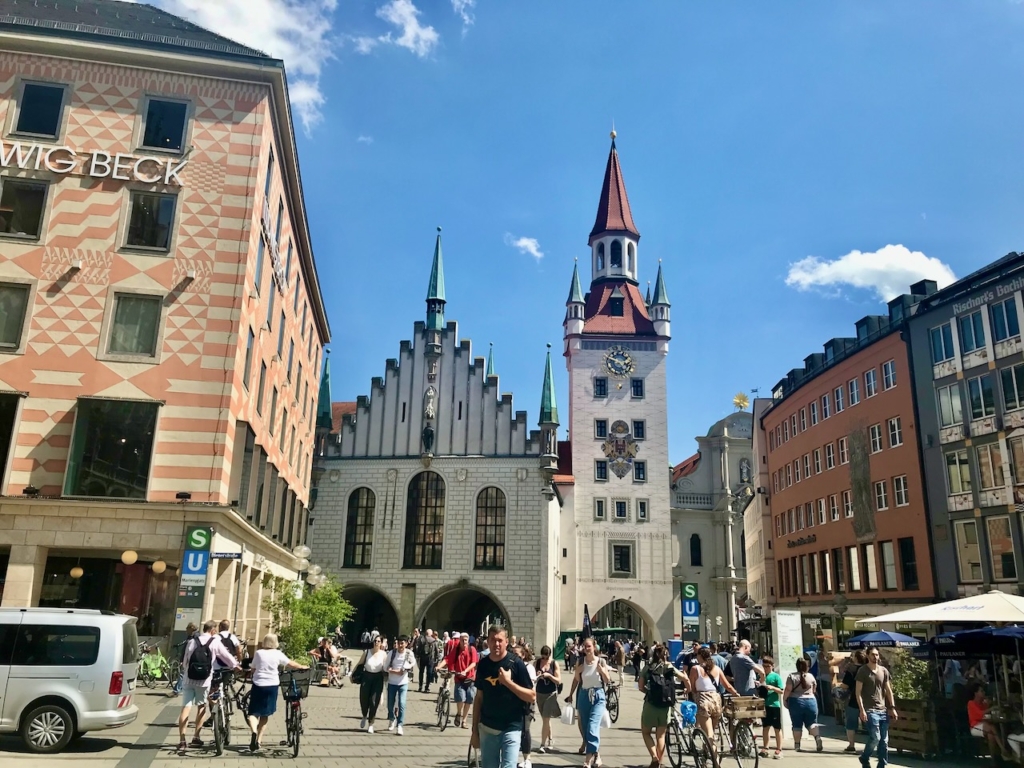Latvia for a long weekend in May
It was the May long weekend, and I had an extra day off. There was no question that I was going somewhere, but where was the question. For the May four-day weekend in April I went to Malta, which meant that, for variety, I should have gone somewhere other than Europe, but I just couldn’t stop thinking about Latvia. I don’t even know what I was thinking except that 1) the only Baltic country I had been to was Estonia (and that was years ago) and 2) they have incredible art nouveau architecture in Riga. The tipping point in favour of going was when I saw that I could spend a long layover in Munich on either end of the trip, and I hadn’t been to Munich. Flying to Riga for a long weekend from Vancouver isn’t exactly a budget fight for a long weekend, but not terrible and being in Riga is a bargain, so I booked the flight.
Layover in Munich
I was excited to have a layover in Munich – two layovers actually. Six hours each. Long enough to see something of the city. I arrived at about 1:00 pm and power walked my way through the airport, through immigration, where the officer told me, looking through my nearly full passport “you travel too much”, and to the S-Bahn station. (As an aside, this was the final trip that I took with that passport, as it was full – 6 years into its 10-year lifespan. I wear that as a badge of honour.)
The S-1 and the S-8 both go to the city centre of Munich and come every 10 minutes or so. The ride takes about 40 minutes. To save time, I had pre-purchased my train ticket online. (This was not really necessary. I could have bought it from a machine easily, but like I said, it was a 6-hour layover. Every minute counts.)

The Marienplaz Station is the one right in the centre of the old town and coming up the escalator from the station into the sunlight, was a delight. Germany! I was immediately surrounded by beautiful old buildings, street musicians, and throngs of people. It was a hot spring day and even if all I had had time for was a coffee in the square, that would have been satisfying. But I had time for a bit more.
I had done a bit of map review before my flight, so I had a rough plan about where I wanted to walk. I didn’t stray too far from the main square, gawking at the Neues Rathaus (the new town hall) and Alte Rathaus (the old town hall) before walking around the food stalls of the Viktualienmarkt, picking up a perfect sandwich to munch on.


I didn’t linger anywhere too long, but enjoyed wandering around the area, having a coffee, buying a cigar at a little shop, enjoying the architecture, and poking my head into shops and churches.








With a 6-hour layover, I comfortably had 3 hours in the city, so was never totally relaxed. My pace was brisk and I checked the time a lot, but I had a good time and made mental notes (also some actual notes) about what I would do when I returned in 3 days’ time.
I took the train back to the airport where, thankfully, there were no extraordinary queues, and was back in time to duck into a lounge at the airport before boarding my flight to Riga. Next stop: Latvia.























































































































































































